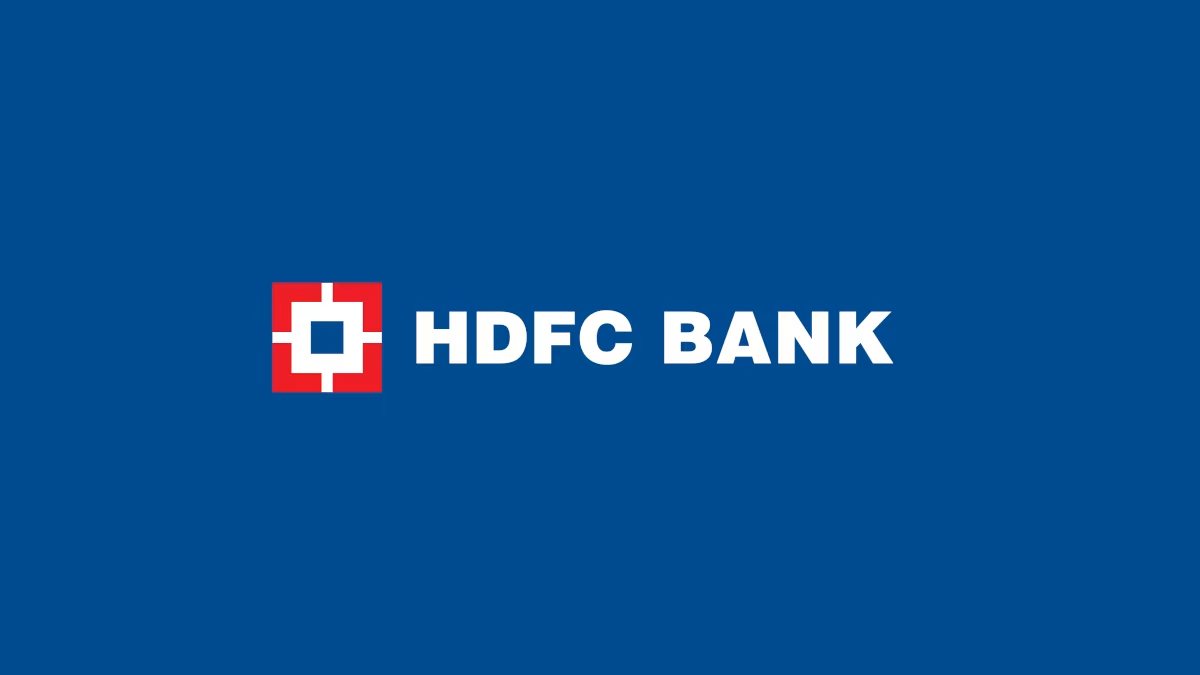Investing in the stock market can feel like a rollercoaster ride, especially when it comes to high-profile stocks like HDFC Bank. With its reputation as one of India’s leading financial institutions and the biggest bank in private sector, many investors are keen to understand the current status of HDFC Bank’s share price.

In this article, we will analyse the latest trends, performance metrics, and expert insights to help you decide whether to buy, hold, or sell HDFC Bank shares today.
HDFC Bank Share Price & Market Performance.
Multiple factors, including market trends, economic conditions, and company fundamentals, influence the bank’s stock performance.
Below is a snapshot of HDFC Bank’s key market details:
| Metric | Value |
| Traded Volume | 49,32,085 |
| Market Cap (Cr) | 13,88,058.32 |
| Avg Traded Price | ₹680.72 |
| 1-Year Return | 25.91% |
| Upper Circuit | ₹1,836 |
| Lower Circuit | ₹1,805.85 |
| P/E TTM | 20.00 |
| P/B Ratio | 91.00 |
| EPS TTM | 90.928 |
| Book Value | 90.928 |
| Dividend Yield | 1.00% |
Current Share Price Trends.
The HDFC Bank share price today stands at approximately ₹680.72 (Average Traded Price). This price reflects a robust growth trajectory, especially considering the 25.91% return over the last year. Investors are keenly watching how the stock performs amidst changing market conditions.
Historical Performance.
HDFC Bank has shown resilience even during market downturns. Its historical performance indicates that it has consistently provided value to its shareholders.
Here are some highlights:
- Stable Growth: The bank has maintained a steady growth rate, making it a favourite among conservative investors.
- Dividend Payouts: HDFC Bank has a consistent record of paying dividends, which adds an extra layer of appeal for income-focused investors.
Factors Influencing Share Price.
Understanding the factors that influence HDFC Bank’s share price is crucial for making informed investment decisions. Here are some key elements to consider:
1. Economic Conditions.
The overall economic health of India plays a significant role in the performance of banking stocks. Factors such as GDP growth, inflation rates, and interest rates can impact HDFC Bank’s profitability and, consequently, its share price.
2. Regulatory Changes.
The banking sector is heavily regulated. Any changes in regulations can affect HDFC Bank’s operations and profitability. Potential investors must monitor RBI policies and other financial regulations.
3. Market Sentiment.
Investor sentiment can significantly sway share prices.
Positive news about the bank’s performance or the economy can lead to price surges, while negative news can cause declines.
4. Competition.
The banking sector is highly competitive, with numerous players vying for market share. HDFC Bank needs to maintain its competitive edge through innovation and customer service.
Cash Flow Analysis.
Cash flow is a critical factor in evaluating a company’s financial health.
Here’s a breakdown of HDFC Bank’s cash flow over the past five years:
| Particulars | Mar 2024 | Mar 2023 | Mar 2022 | Mar 2021 | Mar 2020 |
| Operating Activities | 35,015.00 | 27,313.40 | -14,208.70 | 41,494.80 | -16,689.80 |
| Investing Activities | 7,094.17 | -2,428.88 | -1,291.60 | -1,120.17 | -1,104.92 |
| Financing Activities | -22,236.90 | 16,121.90 | 48,191.80 | -7,381.11 | 22,851.80 |
| Net Cash Flow | 25,382.30 | 41,438.20 | 32,856.50 | 32,851.70 | 5,271.08 |
Key Observations.
- Positive operating cash flow: The bank has demonstrated strong cash flow from operations, particularly in 2024 and 2023.
- Investing activities: A shift from negative to positive in 2024 suggests improved asset management.
- Financing activities: The fluctuations indicate changes in debt and equity financing strategies.
Challenges Ahead.
The following are some of the key potential challenges ahead for HDFC Bank:
- Regulatory Scrutiny: As a major player in the banking sector, HDFC Bank is subject to strict regulatory oversight. Changes in regulations or compliance requirements can impact operational flexibility and profitability.
- Economic Uncertainty: Factors such as inflation, interest rate fluctuations, and global economic conditions can create uncertainty. Economic downturns may affect loan repayment rates, which could hit the bank’s bottom line.
- Intense Competition: The banking industry is highly competitive, with new entrants and established players vying for market share. HDFC Bank must continuously innovate to maintain its edge and attract customers.
Should You Buy, Hold, or Sell?
The following are key things to consider when making a decision:
Buying HDFC Bank Shares.
If you’re considering buying HDFC Bank shares:
- Positive Growth Trajectory: The bank’s consistent growth and performance metrics indicate it could be a good long-term investment.
- Strong Market Position: As one of the leading banks in India, HDFC has a solid reputation that can be advantageous during market fluctuations.
Holding HDFC Bank Shares.
If you currently own HDFC Bank shares:
- Stable Returns: Given the steady growth and dividends, holding onto your shares could yield beneficial returns over time.
- Market Volatility: If you anticipate market volatility, maintaining your position could be wise, as HDFC Bank has historically weathered economic storms well.
Selling HDFC Bank Shares.
If you’re contemplating selling:
- Short-Term Strategy: If your investment strategy focuses on short-term gains, it might be an opportune time to sell, especially if the stock price has reached a favourable level.
- Market Conditions: If you foresee adverse market conditions or changes that could negatively affect the bank’s performance, selling might be a prudent choice.
Conclusion.
The decision to buy, hold, or sell HDFC Bank shares should be based on thorough analysis and personal financial goals. With a robust position in the share market today, consistent growth, and a history of dividends, HDFC Bank remains a compelling option for many investors. However, as with any investment, understanding the risks and doing your due diligence is crucial. Stay updated on market trends and expert insights to navigate your investment journey successfully.
Leave a Reply